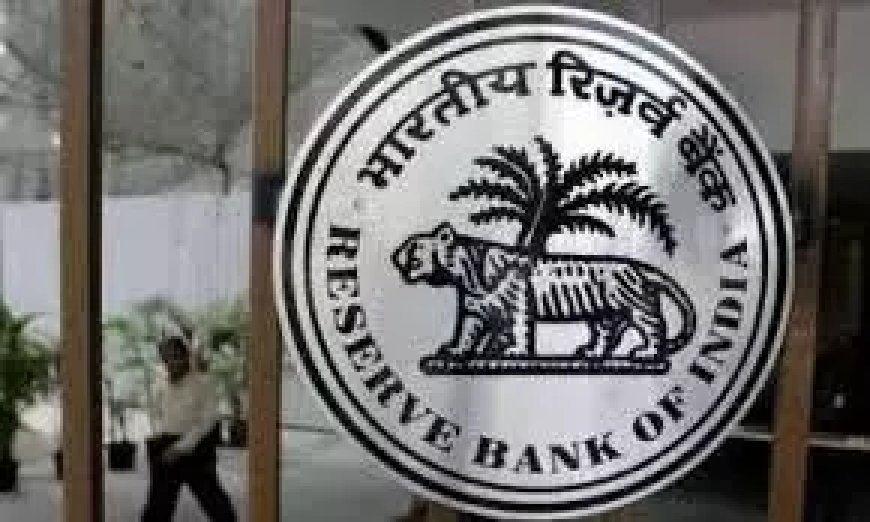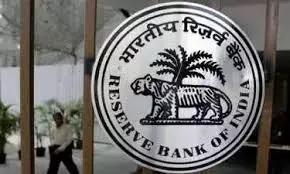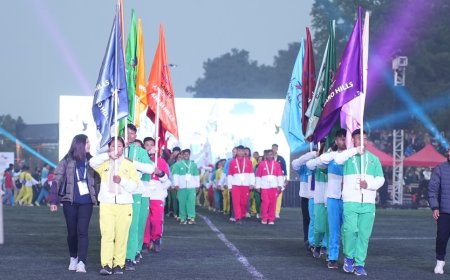RBI says State freebies crowd out productive expenditure
Mumbai: The Reserve Bank of India (RBI) on Thursday suggested that Indian states need to contain and rationalise their subsidy outgoes on farm loan waiver, free power and transport so that such spending does not crowd out more productive expenditure. In a report, titled 'RBI’s State Finances: A Study of Budgets 2024-25,' released on Thursday the central bank termed increasing spending by states on subsidies as an “incipient stress” and called for rationalisation of such outgoes. “An area of incipient stress is the sharp rise in expenditure on subsidies, driven by farm loan waivers, free/subsidised services (like electricity to agriculture and households, transport, gas cylinder) and cash transfers to farmers, youth and women. States need to contain and rationalise their subsidy outgoes, so that such spending does not crowd out more productive expenditure,” said the RBI’s report. The central bank called for an urgent review of the outgoes on subsidies to free up resources for increased investment in health, education, agriculture, research and development (R&D) and rural infrastructure, which will help create more jobs and reduce poverty on a sustainable basis. The report also noted the weak financial health of state-owned electricity distribution companies (DISCOMs) which remains a challenge for state government finances. Despite multiple financial restructuring efforts, DISCOMs' total outstanding debt has grown at an average annual rate of 8.7 per cent since 2016-17, rising from Rs 4.2lakh crore to Rs 6.8 lakh crore in 2022-23 (2.5 per cent of GDP). The report noted that while the overall debt of the states declined from 31.8 per cent of GDP at end-March 2004 to 28.5 per cent of GDP at end-March 2024; it still remains well above the level of 20 per cent recommended by the Fiscal Responsibility and Budget Management (FRBM) Review Committee (2017). The RBI report suggested data analytics, the adoption of machine learning and artificial intelligence can help states further refine their taxation systems and augment tax capacity. The report suggested that all current/revenue expenditures should be financed from current revenue. Capital expenditure should be financed through borrowings and should have a clear, transparent & time-bound glide path for debt consolidation,” it said.


Mumbai: The Reserve Bank of India (RBI) on Thursday suggested that Indian states need to contain and rationalise their subsidy outgoes on farm loan waiver, free power and transport so that such spending does not crowd out more productive expenditure.
In a report, titled 'RBI’s State Finances: A Study of Budgets 2024-25,' released on Thursday the central bank termed increasing
spending by states on subsidies as an “incipient stress” and called for rationalisation of such outgoes.
spending by states on subsidies as an “incipient stress” and called for rationalisation of such outgoes.
“An area of incipient stress is the sharp rise in expenditure on subsidies, driven by farm loan waivers, free/subsidised services (like electricity to agriculture and households, transport, gas cylinder) and cash transfers to farmers, youth and women. States need to contain and rationalise their subsidy outgoes, so that such spending does not crowd out more productive expenditure,” said the RBI’s report.
The central bank called for an urgent review of the outgoes on subsidies to free up resources for increased investment in health,
education, agriculture, research and development (R&D) and rural infrastructure, which will help create more jobs and reduce poverty on a sustainable basis.
The report also noted the weak financial health of state-owned electricity distribution companies (DISCOMs) which remains a challenge for state government finances. Despite multiple financial restructuring efforts, DISCOMs' total outstanding debt has grown at an average annual rate of 8.7 per cent since 2016-17, rising from Rs 4.2lakh crore to Rs 6.8 lakh crore in 2022-23 (2.5 per cent of GDP).
The report noted that while the overall debt of the states declined from 31.8 per cent of GDP at end-March 2004 to 28.5 per cent of GDP at end-March 2024; it still remains well above the level of 20 per cent recommended by the Fiscal Responsibility and Budget Management (FRBM) Review Committee (2017).
The RBI report suggested data analytics, the adoption of machine learning and artificial intelligence can help states further refine
their taxation systems and augment tax capacity.
The report suggested that all current/revenue expenditures should be financed from current revenue. Capital expenditure should be financed through borrowings and should have a clear, transparent & time-bound glide path for debt consolidation,” it said.
The central bank called for an urgent review of the outgoes on subsidies to free up resources for increased investment in health,
education, agriculture, research and development (R&D) and rural infrastructure, which will help create more jobs and reduce poverty on a sustainable basis.
The report also noted the weak financial health of state-owned electricity distribution companies (DISCOMs) which remains a challenge for state government finances. Despite multiple financial restructuring efforts, DISCOMs' total outstanding debt has grown at an average annual rate of 8.7 per cent since 2016-17, rising from Rs 4.2lakh crore to Rs 6.8 lakh crore in 2022-23 (2.5 per cent of GDP).
The report noted that while the overall debt of the states declined from 31.8 per cent of GDP at end-March 2004 to 28.5 per cent of GDP at end-March 2024; it still remains well above the level of 20 per cent recommended by the Fiscal Responsibility and Budget Management (FRBM) Review Committee (2017).
The RBI report suggested data analytics, the adoption of machine learning and artificial intelligence can help states further refine
their taxation systems and augment tax capacity.
The report suggested that all current/revenue expenditures should be financed from current revenue. Capital expenditure should be financed through borrowings and should have a clear, transparent & time-bound glide path for debt consolidation,” it said.






































